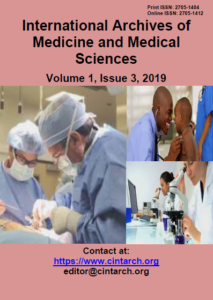
International Archives of Medicine and Medical Sciences (IAMMS), pISSN: 2705-1404; eISSN: 2705-1412
November to December 2019 Vol 1(3): pp.20-28 DOI: https://doi.org/10.33515/iamms/2019.030/30
Copyright © 2019 C-International Archives
Original Article
Perception and predictors of HIV status disclosure among people living with HIV/AIDS in Sokoto, Nigeria
Ismaila Ahmed-Mohammed1*, Mohammed T. Ibrahim1,2, Kehinde J. Awosan1,2,
Hindatu M. Tukur3, Maryam M. Ahmad4
1Department of Community Medicine, Usmanu Danfodiyo University Teaching Hospital, Sokoto, Nigeria
2Department of Community Health, Usmanu Danfodiyo University, Sokoto, Nigeria
3Department of Family Medicine, Usmanu Danfodiyo University Teaching Hospital, Sokoto, Nigeria
4Department of Nursing Sciences, Usmanu Danfodiyo University, Sokoto, Nigeria*Corresponding Author’s Email: ismaila.ahmed2007@gmail.com
Published December 31, 2019
ABSTRACT

